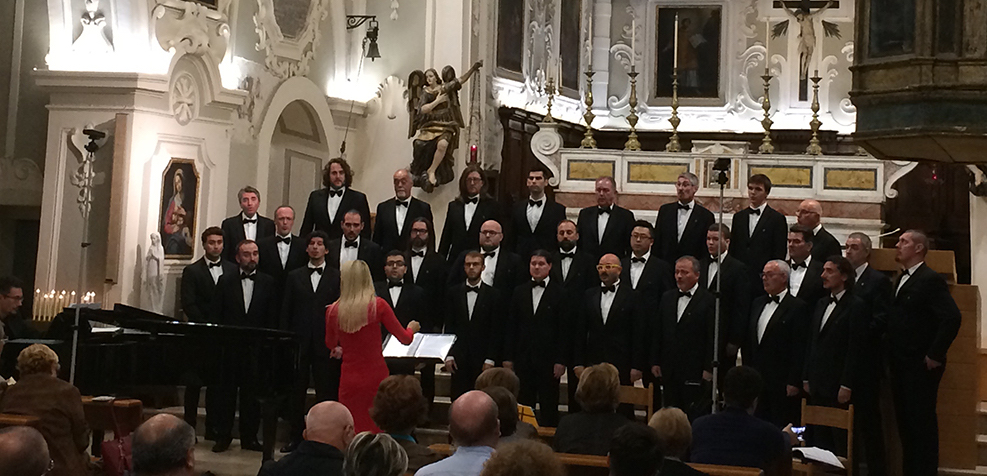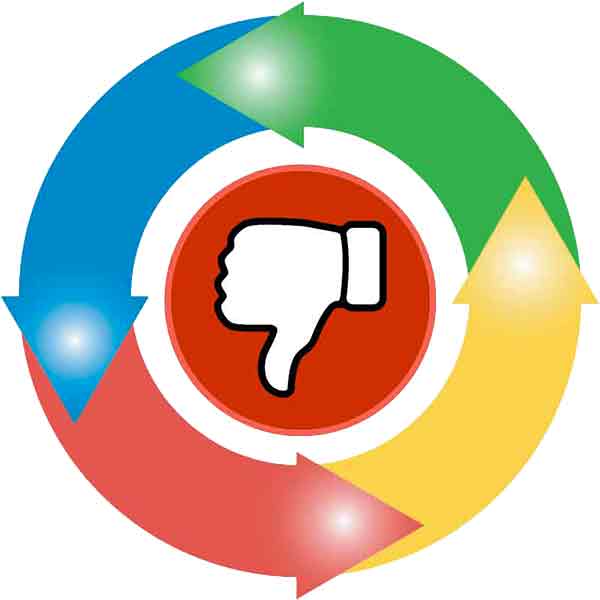
The dynamic image of Sustainability
15/10/2018
What’s wrong in Management?
08/12/2018… when it is only a buzzword! A warning: this article is not for the faint-hearted. It is for the bold who really want to profit from the opportunity of a paradigm shift that we are facing today.
Back to the subject now. Don’t worry, dear reader: I have nothing against the circular economy in itself, when it adheres to what its name should really mean. But circular economy is nothing that a single company can achieve. It is even hard for a single State, in the contemporary world. It’s a systemic thing, where everything has to be managed as interconnected, innumerable stakeholders must be highly aware of such connections and pursue strategic objectives accordingly, etcetera.
Nature is indeed a “circular economy”, or rather a “circular ecosystem”. In Nature we see a perfect example of what a circular system should be. You may notice that in a natural system it is not the single individual to prioritize its interests. It is rather the system’s balanced functioning the overarching goal that everyone accepts and aims to. Hence the extinction of some species from time to time, because they are no longer functional, or the normally accepted fact that anyone and anything will be food for someone and something else. Finally, to talk circular, the system must include the time element and, at least, the solar system, not just Earth. Energy comes originally from the Sun and resources are generated, and regenerated, in geological times. Take this as a broader metaphor and you will understand why talking lightheartedly about “circular economy” is preposterous, intellectually dishonest or, more simply, naive (Please mind that I have specified “talking lightheartedly” before commenting).
However, Nature is a perfect circular system, and I firmly believe that humans must go back to learn and draw inspiration from it to run their society and lives. Then what? Let’s breathe deeply, calm down and… go back to sustainability!
I am having this discussion frequently with the most passionate “circular evangelists” and so far no one was successful in challenging my point: you can achieve a circular economic process, for example, through slave labour, or bribery, whilst you cannot do that with a sustainable economic process. If you can demonstrate that I am wrong, I will yield. BTW: the argument that “of course, we take for granted that those pursuing circularity will do so ethically” does not work, sorry. Otherwise we should just “take for granted that everyone running an economic process will do so ethically”, sit back and enjoying the ride on a doomed planet.
We must be honest, my friends the “circulars”: circularity is only an adjective describing the flows of matter and energy in processes. Sustainability is a much more holistic concept, implying the three dimensions of (shared) economic prosperity, social value and environmental stewardship, plus accountability to stakeholders and transparency. Of course, the best type of processes that you can use to achieve sustainability are the circular ones.
Therefore, the logical conclusion is that sustainability of human activity must be the goal and that its processes should mostly be circular. How come that so many overlook this simple logic? The problem comes from the fact that sustainability has quickly fallen into the hands of PR people and spin doctors, becoming a marketing buzzword rather than the strategic driver of excellent entrepreneurship that it is. Except for some, of course, who became frontrunners, like Interface (US) or Novamont (I).
Instead of focusing on embedding sustainability in every process, and reaping in due time its golden fruits, many companies fell into the “reporting frenzy”, i.e. entrusting their sustainability to the communication or marketing department and spending on publishing the glossiest reports to portray themselves better than they were. They didn’t care about improving themselves. All this for the sake of some superficial reputational advantage and to the detriment of the entire sustainability opportunity. Unfortunately, communication and spin doctors are hungry people and fast eaters, therefore they have “burnt” the potential of sustainability as a buzzword to spin in their releases: now they need something new. Likewise politicians who, well before they could deservedly claim any achievement in making our societies more sustainable, are turning enthusiastically towards the circular economy concept in the same weak and confused way as they approached sustainability and sustainable development: a lot of words, blurred strategies, if any, very few concrete decisions and implementations. Especially: zero dramatic truth telling to their constituencies.
Spin doctors, marketing wizards and politicians want us to forget that we haven’t achieved sustainability, that we are not even near to the pace needed to achieve the SDGs in 12 years, or the < 2 degrees celsius global warming, and happily join the “circular economy” party. No guys: we are still stuck in a huge global crisis – going deeper into it, rather – and we have to rethink our policies, societies, economies, business models, lifestyles radically to make them sustainable. The way I recommend is “to give back to words their original meaning”. It’s not mine, actually: it’s Confucius.
This is why, with all my affection and deep esteem for the real, sincere pursuers of circularity, I prefer to stick to the more holistic concept of sustainability, striving to have it embraced strategically and embedded in every process by organizations. Circularity of processes such organizations will naturally pursue, because it will be the logic of sustainability to take them to it. Indeed, Sustainability implies a lot of radical innovation: it is my belief that the majority of innovation generated by the sustainability effort of companies will go in the direction of circularity of processes and use of matter and energy. Therefore, we are rowing in the same directions, but discernment of ends and means is necessary to be effective and skip the pitfalls of empty talk.
It is my sincere hope that by speaking out with such sincerity and adamantly I have not spoiled the many friendships that I have among the “circulars”. I look forward to work again with many of them in the pursuit of a sustainable economy and society. There’s yet so much to benefit from the work of embedding sustainability in human thinking and actions that we’ll not be idle: promise!

